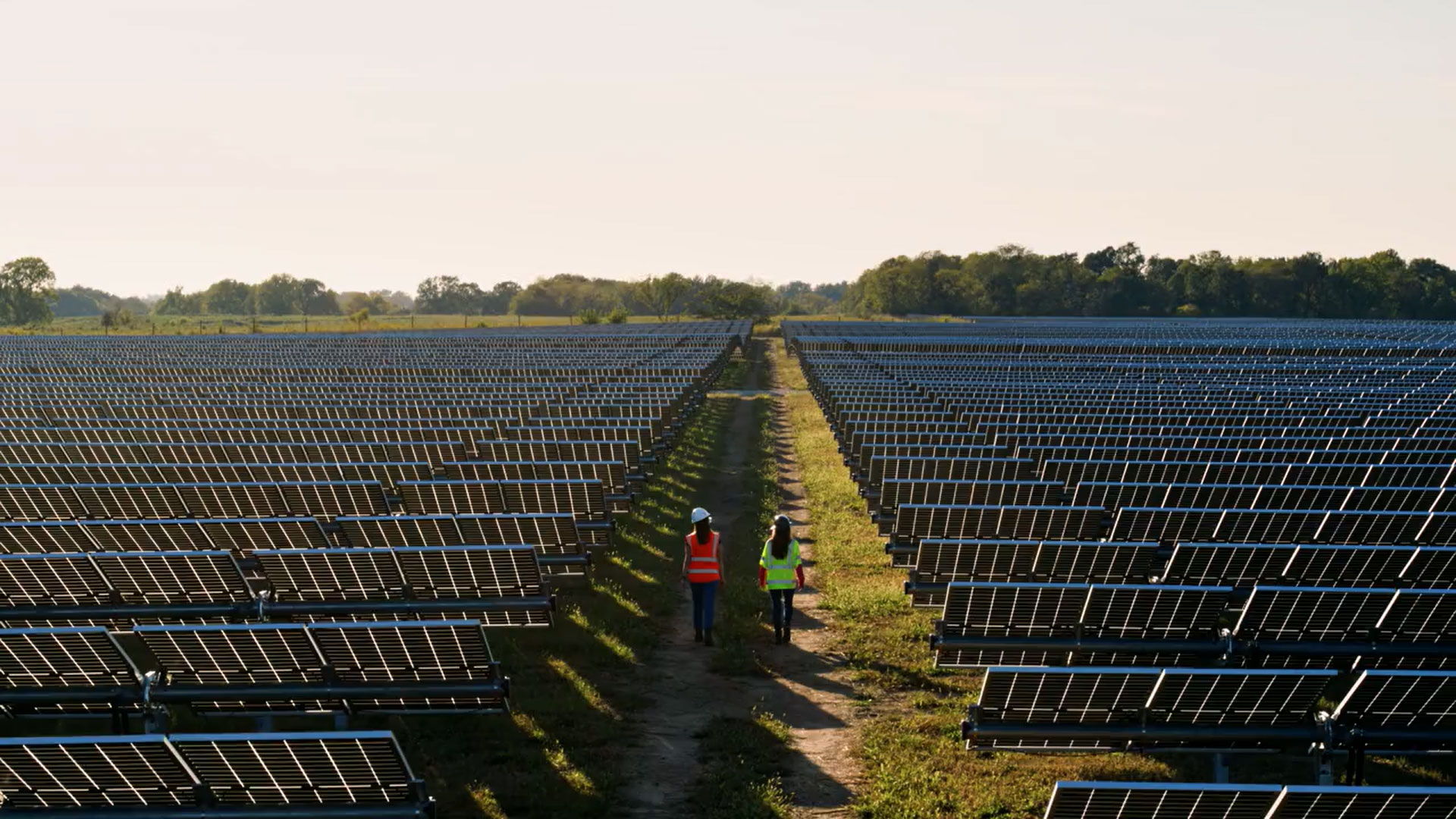By Ipinayo Ade-Akingboye
My name is 'Ayo Ade-Akingboye, the new marketing intern at Sol Systems. Every summer, Sol
Systems welcomes a cohort of interns who bring curiosity, drive, and fresh ideas into the work of
building America’s energy future. This year, I get to be part of that group—and introduce the
incredible people I’m learning alongside.
The 2025 intern class comes from a range of academic and professional backgrounds like
construction, physics, engineering, business, and more. What unites us is a shared belief that clean
energy can do more than power the grid; it can power opportunity, community, and lasting impact.
We’re contributing to real work from day one, and we’re learning from some of the best in the
business—people who care deeply about what they do, and about the world we’re trying to build.
Here’s a look at the 2025 intern class:
Saptarshi Dutta – Construction
Saptarshi (Rishi) is pursuing a Master’s in Construction Management Technology at Purdue
University. Before joining Sol, he worked as a Project Engineer in India, managing commercial site
execution, quantity takeoffs, RFIs, and subcontractor coordination. He was drawn to Sol because of
its focus on clean energy and sustainable infrastructure. This summer, he’s excited to explore how
solar projects are managed from start to finish, especially through the lens of a developer.
Ary Singh – Performance Asset Management
Ary is studying Physics and Economics at the University of Virginia. Over the past two summers, he
worked in nuclear physics research at a Department of Energy facility in Oak Ridge, Tennessee, where
he focused on detector simulations. He joined Sol to gain experience in the renewable energy space
and deepen his understanding of performance analysis in solar. He’s especially looking forward to
working with data, exploring the asset side of clean energy.
Ipinayo Ade-Akingboye – Marketing
That’s me! I’m an MBA candidate at the University of Maryland’s Robert H. Smith School of Business.
Prior to Sol, I worked as a B2B product marketing manager at a fintech startup in Lagos, Nigeria,
where I helped SMEs access and understand financial tools. I was drawn to Sol because of its
commitment to clean energy, equity, and community impact. I’m excited to see how marketing
supports this mission in telling the stories behind the projects and connecting people to the purpose
that drives the work.
Alanna Pearson – Enterprise Business Development & Impact
Alanna studied Science, Technology, and International Affairs at Georgetown University, with a
concentration in Energy and the Environment. Before joining Sol, she supported climate-related
business development at Abt Global, taught in Brazil through the Fulbright Program, and worked as
a Strategy Analyst at Deloitte. She was especially drawn to Sol’s Infrastructure + Impact approach
and the way social value is embedded into project development. She’s excited to learn how that
plays out on the ground through partnerships and strategy.
Belle Jiang – DevCo Engineering
Belle is entering her senior year at Carnegie Mellon University, where she studies Environmental
Engineering and minors in Robotics. Last summer, she interned at NREL with the Thermal Energy
Systems group, exploring hybrid geothermal and solar projects. She came to Sol because of its
commitment to not just building solar projects but doing so in ways that benefit local ecosystems
and communities. She’s looking forward to exploring the technical challenges of solar development
and expanding her perspective on the renewable energy industry.
Khush Rajpurohit – Procurement
Khush is pursuing a Master’s in Engineering Management at Northeastern University, with a focus on
supply chain, after earning his undergraduate degree in Mechanical Engineering. He’s worked in
supply chain roles at Kalyani Forge and Gita Trading in India, and most recently in operations and
product development at a real estate startup. He joined Sol to gain deeper exposure to procurement
in the renewable energy sector, especially in high-impact project environments. He’s eager to learn
about contract negotiation, bidding, and logistics within the clean energy space.
Haritha Sridhar – Pre-Construction
Haritha is completing a Master’s in Construction Management and Technology at Arizona State
University. Prior to Sol, she worked as a Project Manager in residential interior design and as an
Assistant Project Coordinator on commercial and hospitality projects. She was drawn to Sol becauseof its integrated approach such as blending development, finance, and policy to create sustainable
infrastructure. She’s looking forward to gaining hands-on experience on real projects, learning how
clean energy projects move from concept to construction, and collaborating with cross-functional
teams.
It’s a privilege to work alongside this group of bright, driven individuals—and to learn from a
company where mission and execution go hand in hand. We’re excited for the opportunity to
contribute, grow, and be part of Sol’s efforts in building a more resilient and equitable energy future.











